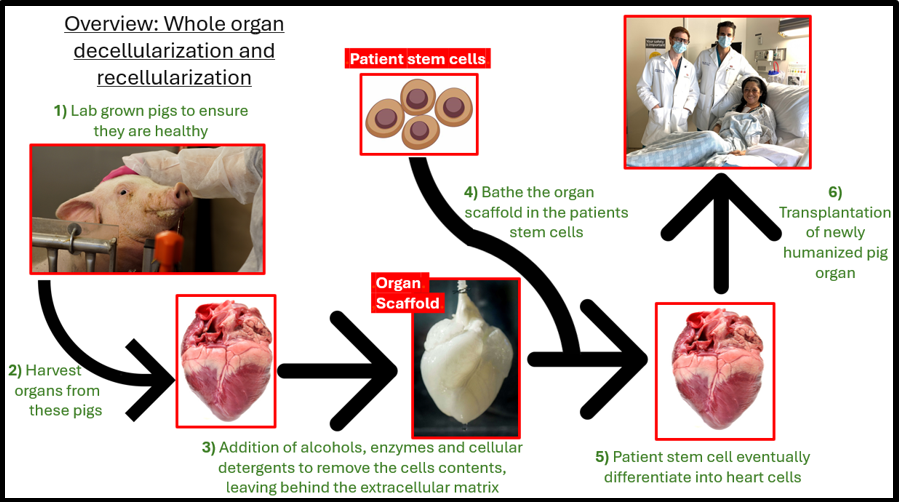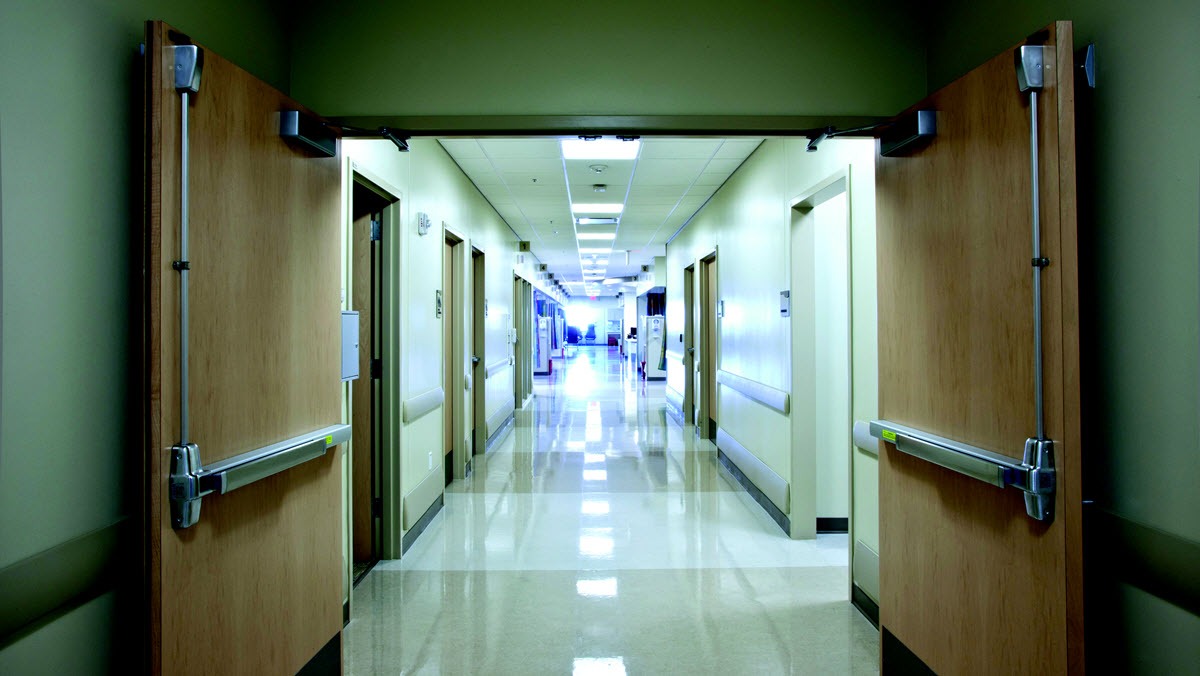
It is no secret that the UK faces a serious organ shortage. Approximately 7,000 people are on a waiting list for an organ, and just last year, 430 people died never receiving one . Strategies have been implemented to help boost the number of donations, such as the switch to an opt out system in the UK. As well as advancements in humanizing animal organs for use, such as the decellularization and recellularization of pig organs with human pluripotent stem cells (see bellow). Or the genetic modification of a pig heart in order to remove its ‘pig markers’, so that after transplant the heart is hidden from our immune system (as seen in David Bennet’s case). Or just straight up growing human organs in chimeric pigs! Hopefully with these advancement, in the future, donations for organs transplant will become obsolete. However, donations to science will always be in demand.


After getting the opportunity to view prosthetic implants in situ, I genuinely felt indifferent. I thought it would be interesting experience but not something that would leave a lasting impression on me, boy was I wrong! After arriving at Southampton General and traversing its maze-like corridors, down into the depths of the hospital. My nose was hit with the overpowering chemical smell and shortly after, I was exposed to a preserved human corpse… A WHOLE (bar their missing lungs) HUMAN CORPSE! [Which I later found out are called cadavers.]
Next I was taken to see the prosthetics in situ and the room resemble something comparable to that of a serial killers basement! Human body parts, preserved and exposing their prosthetics, everywhere! Although being warned about what I would see, being their first hand was such a surreal experience, but very educational and insightful. I even got to touch the specimens first hand, truly a once in a lifetime experience.
Coming away from this event, gave me such an understanding for why donating your body to science is so important. Hospitals will often use the donated bodies to aid with teaching and preparing surgeons for what they might see in theatre. For example, when performing a hip replacement surgery, it is one thing to read about where the prosthetic should sit in the body from text books and videos but getting to see it in person is an invaluable learning experience. I don’t know about you, but I would want my surgeon to have seen where my prosthetic needed to go in situ before they actually went through with the operation! Additionally some donation will go onto to be used as surgical practice for training medical professionals. Or, your body could be used In research, to help aid the progress our knowledge of the human body.

However, are hospitals and medical schools the only places that requires human bodies? When you agree to donate your body to science, will your body definitely be used to aid in the teaching of generations of doctors to come, or could it end up in a barrel?! A notion I would’ve laughed at, until I stumbled across these macabre facilities known as body farms.

Body farms are forensic research facilities that aim to progress our knowledge and understanding about human decomposition. These facilities involve placing bodies in different situation and environments whilst monitoring how they decompose. Data gathered from body farms go onto aid police in determining what may have happened at crime scenes. The UK currently doesn’t have a body farm but there are talks about setting one up.
When it comes down to it, whether you wish to donate your body to science is your own personal choice and you can see mine bellow.